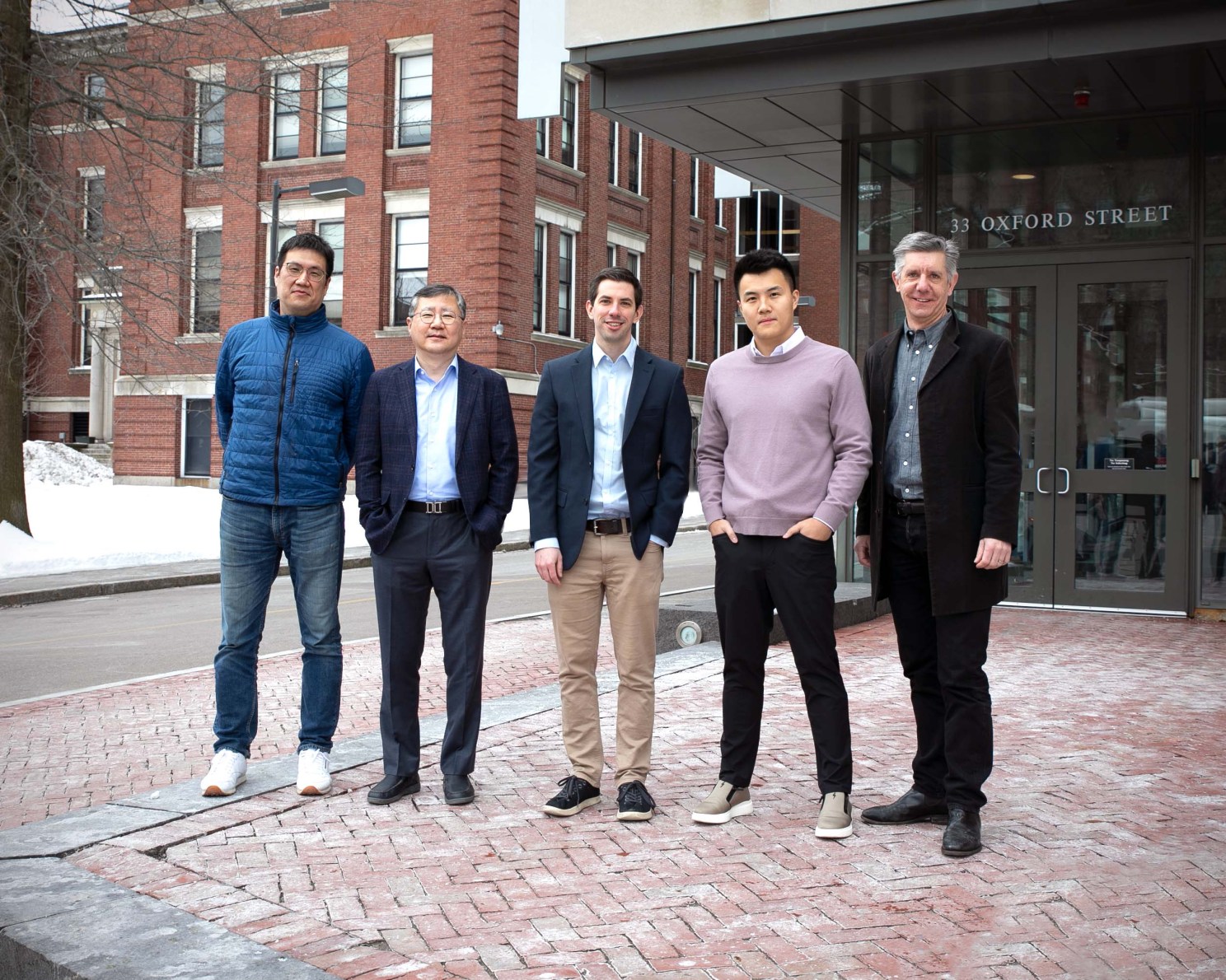Electrical engineers take fresh approach to drug discovery

CytoTronics co-founders, Jeffrey Abbott, Vince Wu, and Duane Sword (center to right) stand with the Professors Donhee Ham and Hongkun Park who advised Abbott and Wu in the development of the first iteration of their technology, which can quickly collect huge amounts of data on almost any kind of cell. Photo by CytoTronics
Jeffrey Abbott is a logical guy. As a graduate student and then a postdoctoral scholar at Harvard, he was already several rungs up the academic ladder. Next rung: professorship. But, after he met fellow Harvard graduate student Vince (Wenxuan) Wu, he decided to leap to an entirely different ladder.
In 2019, Abbott and Wu launched a biotech start-up. And they took that leap right before the COVID-19 pandemic hit, at a time when Boston lab space and equipment — including lab benches — were almost as hard to find as a genetic mutation.
“After securing the initial seed funding led by deep tech investor Anzu Partners, we immediately focused on setting up a new wet lab outside of Harvard. In early 2022, securing a biosafety level 2 location in Boston, let alone sourcing the basic lab equipment and supplies, proved to be a very slow and supply-chain constrained time post-pandemic,” said Duane Sword, who later joined the duo to help co- found the company, CytoTronics, Inc. “We prevailed but it was our first unforeseen challenge.”
And yet, at CytoTronics, the trio is making one notoriously complex and time-consuming process easier, faster, and potentially less expensive, too. With their invention, a semiconductor-based technology platform that can measure and manipulate all kinds of cells, from neural and cardiac to skin and almost everything in between, they can quickly gather huge amounts of cellular data. Because that data can reveal how cells react to potential new treatments—for cancer, genetic diseases, and much more—the team realized their technology could help significantly speed up drug discovery.
[gz_pull_quote attribution=”— Jeffrey Abbott, co-founder and CEO of CytoTronics, Inc.”]“No other platform can capture as much data, as quickly, and for all cell types — it was only logical to make it widely available.”[/gz_pull_quote]
“We’re trying to find the winners. But you also want to find the losers faster, which saves [companies] billions in time, money, and resources,” said Sword, who joined the team after Abbott and Wu asked Harvard’s Office of Technology Development (OTD) for guidance. Chris Petty, OTD’s director of business development, introduced the two students to Sword, who is now the start-up’s chief business officer.
More importantly, swift drug discovery could save lives. Abbott and Wu’s platform isn’t limited to one cell type or one specific disease; it could, for example, help biotech and pharmaceutical companies find new treatments for chronic inflammation, which is associated with heart disease, cancer, arthritis, and inflammatory bowel diseases. Their technology could even help researchers find better ways to heal wounds or test out new CRISPR-based treatments — ensuring the genetic word processor edits the right genes.
If CRISPR is a genetic Swiss army knife, then the CytoTronics platform is like a cellular detective. No other platform, Abbott said, can capture as much data, as quickly, and for all cell types — it was only logical to make it widely available.




